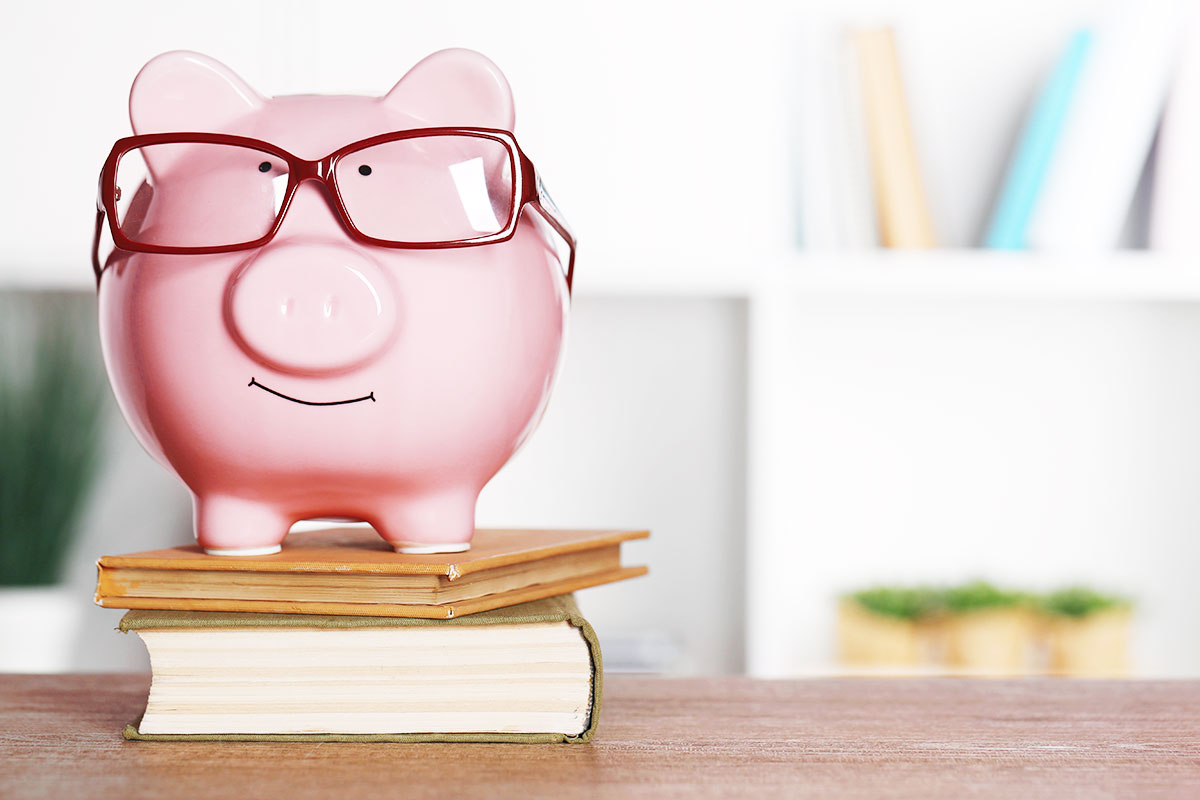One of life’s biggest changes, when it comes to personal finance, is when you start a side hustle as a parent.
When my twins were around a year old, I decided to try to work from home.

I sent out flyers for my service to help children with autism by creating a curriculum for the family to implement.
But, I found this to be too difficult for me. I was out of the house for most of the day, instead of staying home and designing lessons for children with autism.
Many of these families lived in rural areas and I would travel 2-3 hours each way.
I realized I had to find something different and starting a side hustle online was the best option for me.
But, one important thing I had to make sure I was on top of my financial game was to have a solid plan for my new adventure as a side hustler.
It doesn’t matter what stage of the game you’re in.
You should constantly be researching and figuring out the best tips and tricks to up your personal finance game, whether you start a family or start a new business.
Unless you have been living under a rock, I’m sure you have heard of Dave Ramsey.
He has been THE guru of personal finance for quite some time.
If you do a simple search about anything related to personal finance, you are sure to come across a plethora of advice and tips from Dave Ramsey.
As a Dave Ramsey fan myself, I wanted to share his methods and some of his most popular tips and tricks for paying off debt and building wealth.
Because before you start a side hustle, you need to have the confidence that you can live without having a job while you try to pick up clients for your side business.
So let’s get started!
Dave Ramsey’s Methods
If you don’t already know about Dave Ramsey, he wrote the bestseller, Total Money Makeover.
He also developed the Snowball Method and 7 Baby Steps to help people pay off their debts and obtain a better financial future.
His books and programs have helped millions of people achieve financial peace.
And what’s neat is that as a side hustler mama, you can use these financial tips to ensure you don’t create the feast and famine cycle you hear so much from other hustlers.
The Snowball Method

The Snowball Method is fairly simple. You start by paying off your smallest debt.
While you are paying off your smallest debt, you pay the minimum on everything else.
Once you have the smallest debt paid off, you take whatever you were paying towards that and move it to the next debt.
So if you were paying $50 a month on the smallest debt and $25 a month on the next one, you would be paying $75 on the second debt once the smaller one is paid off.
This is where the term snowball comes in.
You just keep rolling the money over to pay off each of your debts.
Doing this can help keep your side hustle going when things look slim. With the Snowball method – Dave Ramsey’s proven system – you may make a goal that with whatever side hustle money you make, you put it back into paying your debts.
Over time, you will have less and less debt and, hopefully, more and more clients, which translates into more income coming in.
Dave Ramsey’s Baby Steps
The baby steps from Dave Ramsey are seven steps that anyone can use to help pay off their debts and invest in their future.
It includes saving for emergencies, paying off debt, and investing in the future.
Let’s look at them and see how you can incorporate them as a new side hustler.
Baby Step 1 – Save $1,000 for An Emergency Fund
The first step of saving $1,000 in an emergency fund is to help prevent you from getting into further debt in the case of an emergency.
This can include anything from a broken water heater to a busted vehicle.
For most people and in most emergencies, a $1,000 gives you a bit of a cushion rather than having to open a line of credit or asking family members for help.
And this is a good idea when you start your side hustle. You don’t know how long it will take to find that first client, and you will have to invest in your side hustle by paying for hosting, coaches or courses, an email service provider and other tools to get your website and business up and running.
Baby Step 2 – Pay Off All Debts Except Mortgage
This is often the most painful and time-consuming step. This is also where the debt snowball comes into play.
Those following Dave Ramsey’s seven steps should pay off all of their debts except for their mortgage, which comes in a future step.
You may be able to speed up this process with your side hustle income. Reserve income from your side hustle to invest back in your business, but to also pay your debts using the debt snowball method.
Baby Step 3 – Save Even More in Your Emergency Fund
While $1,000 in an emergency fund is a great start, you ideally should have three to six months of expenses saved up in your emergency fund as well.
This will help cover you in case you or your spouse lose your job, one of you is not able to work, or you go full-throttle into your side hustle.
You will still be able to cover bills without having to go into debt.
How much would you need if you were unable to work for three to six months? Add that amount to your savings.
Baby Step 4 – Invest for Retirement
Ideally, you should be investing 15% of your income towards your retirement. Once you have your current financial situation, all taken care of, you want to make sure that your financial future is also headed in the right direction.
Baby Step 5 – Put Aside Money for College
College is only becoming more and more expensive, isn’t it? It doesn’t matter how old your kids are, you should be setting some money aside for their college funds.
Dave Ramsey says that, ideally, college educations should be paid in cash.
Even if you don’t have kids yet but are planning to in the future, don’t wait to start a college savings account.
Use income from your side hustle to also reserve money for college down the road.
Baby Step 6 – Pay Off Your Mortgage
Once you have all of the other baby steps checked off, it’s time to pay off your mortgage.
This is where your side hustle income from your service, products or from blogging will help with the budgeting.
There are lots of ways to do this, find something that is going to work for you and revel in a fully debt-free life.
Baby Step 7 – Build and Give Wealth
Now that you are debt-free and have solid savings, Dave Ramsey recommends it’s time to build and give the wealth you have created.
You can build through investing in startups, stocks and give your wealth to charities and causes you are passionate about.
Now that you have a solid understanding of how to get started on the road to financial freedom let’s take a look at some of Dave Ramsey’s top money tips and how you can apply them as you start your new side hustle.
Top Dave Ramsey Money Tips for New Families

Once you have the basic knowledge and have committed to improving your financial future, you can take things a step further with these top tips from Dave Ramsey himself.
1. Write Down Your Zero-Based Budget
This step is extremely helpful when you are just starting out and trying to save money and pay off your debts.
A zero-based budget means that you are budgeting for every dollar coming in and every dollar going out.
It sounds like a lot, I know, but having a strong budget creates a foundation for a successful financial planning strategy for when you start a side hustle.
Writing it all down will help you figure out what you can cut out or spend less money on.
I personally use my bullet journal to write down my monthly budget.
2. Take Care of Your Priorities First
While it’s fun to go out and spend money on things that you want, you need to be able to take care of your priorities first.
Dave Ramsey refers to this as “the four walls.”
The four walls, which include food, shelter, transportation, and clothing, are the things that you should be budgeting for before anything else.
You shouldn’t be budgeting for entertainment when you can’t even afford to buy school clothes for your kids or think this is the perfect time to start a side business.
Because both my husband and I work from home and have our own business, we are very frugal when it comes to extra curricular activities.
We don’t go on vacation every year. We have one car that’s 10+ years old.
Our priorities is providing for our twins and being there as a family.
3. Use Cash Whenever Possible
Did you know that on average, when you use cash instead of a card, you spend 15 to 20% less? Sounds crazy, right?
When you’re spending cash instead of swiping a card (whether it is a credit or debit card), you are more conscious about how much you are spending.
One of the things that Dave Ramsey suggests is to use cash envelopes along with your budget to make sure you are staying on track with what you are supposed to be spending.
4. Buy Used Whenever Possible
This strategy can be applied to almost anything you would normally purchase (clothes, appliances, electronics, etc.).
Dave Ramsey specifically suggests to never buy a new car.
Think about it…
As soon as you drive that shiny new car or truck off of the lot, the value drops down drastically – almost 20% within the first year.
It’s not worth it!
If you want a new or newer vehicle, figure out what the monthly payment would be and start to set that aside each month.
When you have saved up enough, buy that car with cash instead.
For your side hustle, there are many ways you can save money, like picking up a second-hand desk, chair, and even a laptop!
5. Avoid Bad Credit and Use Good Credit
There are a lot of opinions about good and bad credit.
According to Dave Ramsey, the only good credit that you should be taking out is for a mortgage. Everything else, cars, personal loans, and credit cards are all considered bad credit.
Bad credit has high interest rates and is used to purchase things that depreciate (like that new car).
Good credit has much better interest rates and is something that appreciates over time.
Generally speaking, when you purchase a home and make cosmetic changes, you can sell it for more than you paid for it.
6. Avoid Electronic Upgrades
Cell phones are a big one!
Think about it. There is a new smartphone that comes out about once per year with a price tag of about $1,000+.
But is the latest model cell phone really necessary?
It might not seem like you’re spending that much when you pay on it monthly with your plan, but it’s still $1,000!
While the latest smartphone is great to have, you can save a lot of money by not upgrading.
And this won’t hurt your side hustle when you do your discovery calls.
7. Don’t Carry Credit Card Balances
The only people that benefit from you carrying over a balance on your credit card every month is the credit card companies.
Now, it’s not inherently bad to carry a credit card, many of them have some great benefits (such as miles or big discounts for store cards).
If you decide that you are going to use a credit card, pay it off at the end of each month and don’t charge more on it than you can pay off.
When I became a freelance writer when my twins were little, this is exactly what we did.
We are always making sure we have money in our accounts when we use our credit cards and pay them off every month.
8. Sacrifice Now, Benefit Later
One of my all-time favorite Dave Ramsey quotes is to “live like no one else, so later you can live like no one else.”
There are two ways to live paycheck to paycheck.
The first way – that’s unfortunately all too common – is to pay your minimum bills then spend the rest of your paycheck on luxuries.
The second way – which is what the quote refers to – is to use as much of your paycheck as possible to pay off your bills and build wealth with your new side hustle!
When you spend your younger years paying off your debts and building wealth, you can enjoy your retirement rather than worrying about how to live on your fixed income.
9. Plan for Sinking Funds
You might not have heard this term before, but it just means things that are irregular expenses.
While it’s easy to budget for things that come up every single month, there are other things that you need to consider budgeting to make sure that you have sufficient funds.
Sinking funds can include:
- Christmas/Birthday/Anniversary gifts
- Vacations/Travel
- Vehicle maintenance/repair
- Property and other taxes
- Home repairs/remodeling
- Medical expenses
- Membership dues
- School fees/registration/supplies
- Pets-Veterinary care
- Kids activities (here are some low budget ones though!)
Dave Ramsey Help for New Side Hustlers
When you have a firm grasp on your financial situation, you can use these nine Dave Ramsey tips, his snowball method and his baby steps to help create an amazing financial future for your family and new side hustle.
Over to you – as a side hustler, what is your process for saving money and paying off debt?




Leave a Reply